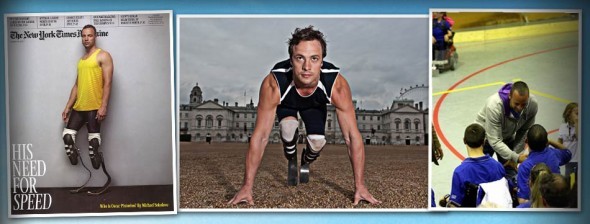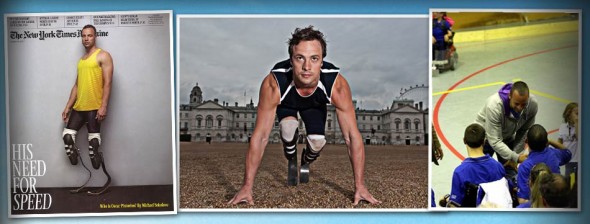
Is South Africa on Trial with Oscar Pistorius?
As the international media descend on South Africa to cover the Oscar Pistorius murder trial, his family have called for an end to “public commentary”, but whether the media are commenting on Oscar – or on South Africa – it’s unlikely to stop just yet. Oscar’s uncle, Arnold Pistorius, said that with the start of […]

As the international media descend on South Africa to cover the Oscar Pistorius murder trial, his family have called for an end to “public commentary”, but whether the media are commenting on Oscar – or on South Africa – it’s unlikely to stop just yet.

Oscar’s uncle, Arnold Pistorius, said that with the start of the athlete’s criminal trial tomorrow (Monday 3rd March 2014), “the family as well as the legal team, will not be distracted by extraneous issues that have no bearing on, or relevance to, the legal process that must now be allowed to unfold.”
He said: “We will not be commenting on any media reports, nor will we be engaging in the press with any issues that belong in court. The time for public commentary is over. The focus is now entirely on a very serious trial that is set to start this Monday.”
He added: “We love Oscar, and believe in him, and will be standing by him throughout the coming trial.”
Pistorius, nicknamed Bladerunner because of his two prosthetic running legs, became a global star and a South African hero when he not only excelled at the Paralympics but fought and earned the right to compete in the London Olympics in 2012.
Less than a year later, in February 2013, the world spotlight shifted onto him again when he shot and killed his beautiful model girlfriend Reeva Steenkamp (29) at his home in Pretoria, in the early hours of Valentine’s Day.
South African Intruders
It seems it is not only Oscar’s superstar fame that has caught the world’s attention, but also the reason Pistorius has given for the shooting. He claims he thought he was shooting an intruder. Overseas media have been intrigued by this aspect of South African life, where “home invasions” are not uncommon, homicide is seven times higher than in the USA, and fear coupled with mistaken identity have led to some similar incidents. Ten years ago another sportsman, former Springbok Rudi Visagie, tragically shot his daughter dead when he mistook her for a car thief.
Some members of the international media are therefore looking at both the trial and at South Africa.
In an article entitled “Pistorius Trial: A Reporter’s Notebook”, journalist Keith Morrison from NBC News writes that the first thing he and his crew noticed upon arriving in South Africa was “the wire”.
Many South Africans have become so used to it they don’t realise how weird it can look to strangers to see high-voltage lines around homes, ‘security villages’ and “even whole shopping malls”. Morrison describes the walls outside homes as “topped with wire that could fry your dinner”.
In trying to understand Oscar’s claim that he “lives in constant fear of violence”, Morrison writes that “you get it right away: fear of violent attack is ever present in this country”.
After interviewing both white and black South Africans who tell him that security is a real part of their life, he discovers that much of the violence is blamed on illegal immigration, vast ineqaulity between rich and poor and a distrust in the police force.
Morrison takes note of the huge South African issue of domestic violence too, and is told frequently by South Africans about the irony that Reeva Steenkamp campaigned against domestic violence.
For some foreigners, the South African judicial system is a little surprising – that a single judge will make the decision on Oscar’s future, rather than a jury of peers. Morrison is a little taken aback by the local attitude that “juries are far too unpreditable, but you can trust a judge”.
Morrison also takes the time to bear witness to the beauty and wonder of South Africa – meeting an olive orchard owner, listening to emotional stories about Nelson Mandela, and noticing how parts of Johannesburg resemble Toronto and other parts look like Beverly Hills.
But it is the South African people who touch him and his American crew the most:
“And yet we can’t get over how friendly the people are: blacks, whites, everybody, apparently. Have we forgotten how to be this way? Were we ever?”
